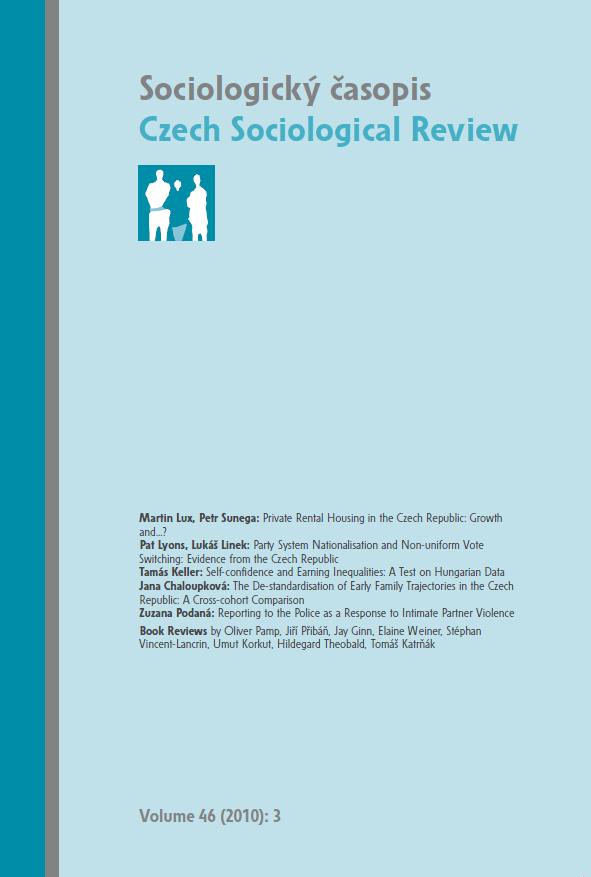Self-confidence and Earning Inequalities: A Test on Hungarian Data
Self-confidence and Earning Inequalities: A Test on Hungarian Data
Author(s): Tamás KellerSubject(s): Social Sciences
Published by: AV ČR - Akademie věd České republiky - Sociologický ústav
Keywords: personality traits; self-confidence; locus of control; earning inequalities; labour market; Hungary
Summary/Abstract: It is easy to see that highly fatalistic, inefficient persons believe that their actions have little outcome. Because greater fatalism lowers an employee’s effort level, it may result in lower wages, while the anti-fatalistic attitude translates into more effective work that in turn may be rewarded with a higher salary. In this article the author tests a self-confidence scale that is similar to the most widely used Rotter locus of control scale. People with high self-confidence have determination, feel they have an influence on their future, and are optimistic. In the analysis the author investigates the predictive power of self-confidence in wage equations using Hungarian data.
Journal: Sociologický časopis / Czech Sociological Review
- Issue Year: 46/2010
- Issue No: 03
- Page Range: 401-425
- Page Count: 25
- Language: English

